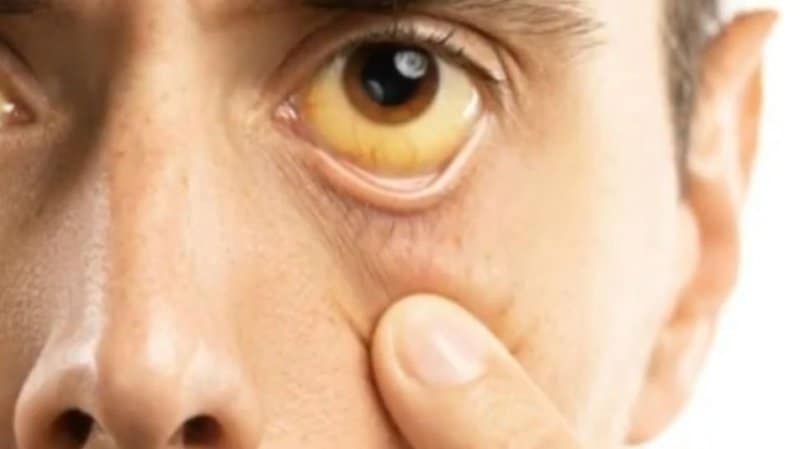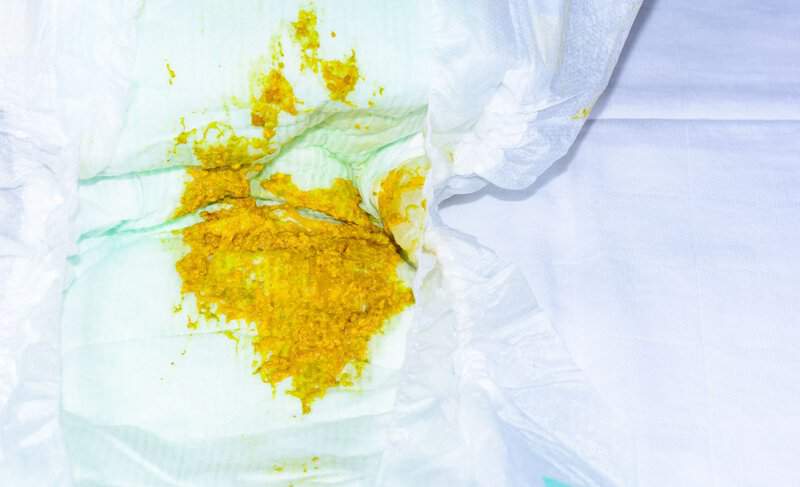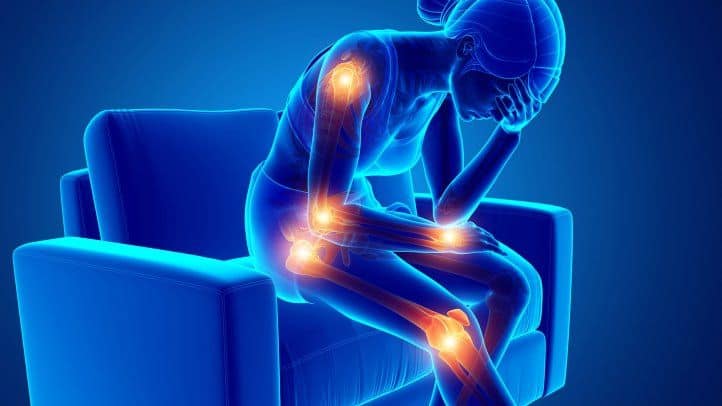Liver and Intrahepatic Bile Duct Cancer Symptoms You Should Never Ignore
Liver and intrahepatic bile duct cancers are serious illnesses that can be challenging to detect in their early stages. These cancers often present with symptoms that overlap with other common ailments, which can lead to delayed diagnosis. Recognizing the warning signs—such as unexplained weight loss, persistent abdominal pain, or jaundice—can make a significant difference in catching the disease early when treatment is more effective. In this article, we explore 20 symptoms of liver and intrahepatic bile duct cancer that should never be ignored. By understanding these signs and staying vigilant, you can take proactive steps toward your health and seek medical attention when necessary.
1. Unexplained Weight Loss
Unintended weight loss is a common symptom of liver and intrahepatic bile duct cancers. This may occur because the body’s energy demands increase or because the cancer impacts the liver’s ability to process nutrients effectively. While some people might be pleased with unintentional weight loss, it is often a red flag when no lifestyle changes have been made.

In daily life, rapid weight loss can lead to physical weakness, fatigue, and difficulty performing regular tasks. The noticeable change in appearance may prompt concern from friends and family, which can add emotional stress. If you experience significant weight loss without trying, it’s essential to seek medical advice to explore potential underlying causes.
2. Loss of Appetite
A reduced appetite is a common symptom of liver and bile duct cancers, often accompanied by nausea or a general feeling of malaise. People might initially attribute their lack of interest in food to stress or minor illness, but a persistent loss of appetite warrants further investigation.

In daily life, loss of appetite can lead to nutritional deficiencies, impacting energy levels and overall well-being. It can also affect social interactions, as meals are often integral to gatherings and social events. If you find yourself consistently disinterested in food or unable to eat normal portions, consult a healthcare provider for evaluation.
3. Abdominal Pain or Discomfort
Pain or discomfort in the upper abdomen is a common symptom of liver cancer, as tumors can press against nearby organs or tissues. This pain may be persistent or intermittent, and it often worsens over time. People might initially attribute abdominal discomfort to indigestion, gas, or a pulled muscle, which can delay diagnosis.

In everyday life, persistent abdominal pain can interfere with daily activities, making it difficult to concentrate at work or enjoy meals. This symptom can also impact sleep, as lying down may exacerbate discomfort. If you experience ongoing abdominal pain that doesn’t improve with standard treatments, seek medical advice.
4. Jaundice
Jaundice is a yellowing of the skin and eyes, caused by an accumulation of bilirubin—a substance produced when red blood cells break down. Liver and bile duct cancers can cause jaundice by obstructing the bile ducts, which prevents bilirubin from being properly processed. Jaundice can be alarming, as the yellowing is usually visible and can lead to itching, dark urine, and pale stools.

In daily life, jaundice can cause discomfort, especially if it’s accompanied by itching. The yellow tint to the skin and eyes can also be distressing, prompting concern from others. If you notice a yellowing of your skin or eyes, particularly if accompanied by other symptoms, seek medical evaluation promptly.
5. Dark Urine
Dark urine can be an early symptom of liver and bile duct cancers, often resulting from elevated bilirubin levels in the blood. The urine may appear dark brown, amber, or even tea-colored. Many people initially attribute dark urine to dehydration or dietary factors, but persistent dark urine should not be ignored.

In daily life, dark urine can be concerning and may prompt feelings of anxiety about one’s health. This symptom can also be accompanied by other signs, such as jaundice or pale stools, which further impact comfort and well-being. If you experience persistent dark urine, particularly with other symptoms, consult a healthcare provider.
6. Pale Stools
Liver and bile duct cancers can cause stools to become pale or clay-colored due to a lack of bile reaching the intestines. Bile gives stools their normal brown color, so a reduction in bile flow can lead to lighter-colored stools. People might initially dismiss pale stools as a minor digestive issue, but persistent changes should be investigated.

In everyday life, changes in stool color can go unnoticed, but paying attention to this symptom is crucial for early detection. Pale stools may be accompanied by other symptoms, such as abdominal pain or dark urine, which should prompt further evaluation. If you notice persistent changes in stool color, consult a healthcare provider for a thorough evaluation.
7. Nausea and Vomiting
Nausea and vomiting can occur in liver and bile duct cancers, particularly as the liver’s function declines. These symptoms may be intermittent or persistent, and they often worsen after eating. While nausea and vomiting are common in many conditions, their persistence in liver cancer can lead to dehydration and malnutrition.

In daily life, nausea and vomiting can make it challenging to eat, drink, or maintain proper nutrition. These symptoms can interfere with work, school, and social activities, as individuals may feel too unwell to participate. If you experience ongoing nausea and vomiting, it’s essential to consult a healthcare provider for evaluation.
8. Swelling in the Abdomen (Ascites)
Ascites is a buildup of fluid in the abdomen, often caused by liver cancer. This symptom can lead to a feeling of fullness, bloating, and discomfort, making it difficult to eat or move comfortably. Many people initially attribute abdominal swelling to overeating or minor digestive issues, but persistent swelling should be investigated.

In everyday life, ascites can make it challenging to wear certain clothing or engage in physical activities. This symptom can also impact comfort, as the swelling may lead to breathlessness or difficulty moving. If you experience persistent abdominal swelling, seek medical attention for evaluation and potential treatment.
9. Fatigue
Cancer-related fatigue is often more severe and long-lasting than regular tiredness and doesn’t improve with rest. In liver cancer, fatigue can occur due to anemia, malnutrition, or the body’s increased energy demands. This type of fatigue can feel overwhelming and persist for weeks or months.

In daily life, fatigue can make even simple tasks, like cooking, cleaning, or going to work, feel exhausting. Individuals might find themselves needing to take frequent breaks or naps, which can interfere with productivity and personal relationships. If you experience persistent, unexplained fatigue, it’s important to seek medical advice to determine the cause.
10. Enlarged Liver or Spleen
An enlarged liver (hepatomegaly) or spleen (splenomegaly) can be a symptom of liver cancer, as tumors can cause these organs to swell. This enlargement may be felt as a fullness or mass under the ribcage on the right side. Many people might dismiss this as bloating, but persistent enlargement should not be ignored.

In daily life, an enlarged liver or spleen can cause discomfort and limit mobility, particularly if the swelling affects breathing or posture. This symptom can also prompt anxiety about one’s health, as the individual may worry about potential underlying causes. If you notice a persistent fullness under the ribcage, seek medical evaluation.
11. Pain in the Right Shoulder
Pain in the right shoulder, known as referred pain, can occur in liver cancer patients. This pain is caused by irritation of the nerves connected to the liver, which can radiate to the shoulder. Many people might initially attribute shoulder pain to physical strain, but persistent pain warrants further investigation.

In everyday life, shoulder pain can limit mobility and make it difficult to carry out regular activities, such as lifting objects or reaching overhead. This symptom can also impact sleep, as lying on one side may worsen the discomfort. If you experience persistent right shoulder pain, especially if accompanied by other symptoms, consult a healthcare provider.
12. Itchy Skin
Persistent itching, or pruritus, can occur in liver and bile duct cancers due to elevated bile acids in the blood. This itching may be widespread or localized, and it can become increasingly uncomfortable over time. Many people initially dismiss itching as a minor skin issue, but persistent itching should be evaluated further.

In daily life, itching can be distracting and interfere with sleep, as the discomfort often worsens at night. This symptom can also impact mental well-being, as the constant itching can lead to frustration and irritability. If you experience unexplained itching, particularly if accompanied by jaundice or dark urine, seek medical advice.
13. Loss of Muscle Mass (Cachexia)
Cachexia, or significant loss of muscle mass, can occur in advanced stages of liver cancer. This condition results from the body’s inability to absorb nutrients and the increased energy demands of fighting the disease. Many people might attribute muscle loss to aging or inactivity, but noticeable muscle wasting should not be ignored.

In everyday life, cachexia can limit mobility and make it difficult to perform daily tasks. This symptom can also impact self-image and lead to emotional distress, as the physical changes can affect one’s confidence. If you notice rapid muscle loss without changes to activity levels, consult a healthcare provider.
14. Loss of Interest in Alcohol
Many people with liver cancer report a sudden aversion to alcohol, as the cancer may alter taste preferences or affect how the liver processes alcohol. Alcohol intolerance can occur due to disruptions in liver function. While many factors can influence taste, a sudden aversion to alcohol may indicate a more serious issue.

In daily life, this symptom might seem minor, but it can be accompanied by other changes in appetite or taste preferences. This change can impact social situations, as people might avoid gatherings that involve alcohol or feel self-conscious about their new aversion. If you notice a sudden change in your taste for alcohol, particularly alongside other symptoms, consider discussing it with a healthcare provider.
15. Fever and Chills
Persistent low-grade fever and chills without a clear cause can be a symptom of liver cancer. This can occur due to the body’s immune response to the tumor or as a result of infection within the liver. While fever and chills can result from various factors, persistent symptoms should be evaluated further.

In daily life, fever and chills can cause discomfort, fatigue, and a general feeling of malaise, impacting productivity and well-being. This symptom can also disrupt sleep, as it may worsen at night. If you experience persistent fever and chills, it’s essential to seek medical advice.
16. Difficulty Breathing
Difficulty breathing can occur in liver cancer patients if the tumor causes fluid buildup in the abdomen or around the lungs. This symptom may feel like tightness in the chest or shortness of breath. Many people experience occasional difficulty breathing due to physical activity or anxiety, but persistent symptoms should not be ignored.

In daily life, shortness of breath can limit mobility and make it challenging to carry out regular activities. This symptom can also impact mental well-being, as it may lead to anxiety or a fear of physical exertion. If you experience persistent difficulty breathing, seek medical evaluation.
17. Back Pain
Back pain, particularly in the upper back, can be a symptom of liver cancer, especially if the cancer has spread. This pain may feel like a dull ache and can worsen with movement or sitting for extended periods. Many people initially attribute back pain to posture or muscle strain, but persistent pain should be evaluated further.

In everyday life, back pain can limit mobility and make it difficult to carry out regular activities. This symptom can also impact sleep and overall well-being, as the pain may worsen at night. If you experience persistent back pain, consult a healthcare provider.
18. Enlarged Lymph Nodes
Enlarged lymph nodes, particularly around the neck or collarbone, can be a symptom of liver cancer that has spread. These lymph nodes may feel like small, firm lumps under the skin. Many people dismiss swollen lymph nodes as a result of minor infections, but persistent swelling should be evaluated further.

In daily life, swollen lymph nodes can cause discomfort and limit movement, particularly if they affect the neck or collarbone area. This symptom can also prompt anxiety, as swollen lymph nodes are often associated with serious health conditions. If you notice persistent swelling, seek medical evaluation.
19. Bone Pain
Bone pain can occur if liver cancer has spread to the bones, particularly in advanced stages. This pain may feel like a deep ache and can worsen with movement or pressure. Many people experience occasional bone pain, but persistent and worsening pain warrants further investigation.

In daily life, bone pain can limit mobility and make it difficult to carry out regular activities. This symptom can also impact sleep and overall well-being, as the pain may worsen at night. If you experience ongoing bone pain, especially if accompanied by other symptoms, consult a healthcare provider.
20. Mental Confusion or Disorientation
Mental confusion or disorientation, known as hepatic encephalopathy, can occur in advanced liver cancer due to a buildup of toxins in the blood. This symptom may cause forgetfulness, mood changes, or difficulty concentrating. Many people might initially attribute confusion to stress or aging, but persistent mental changes should be evaluated further.

In daily life, mental confusion can interfere with work, relationships, and personal safety. This symptom can also impact emotional well-being, as it may cause anxiety or frustration. If you notice persistent confusion or disorientation, seek medical advice.





